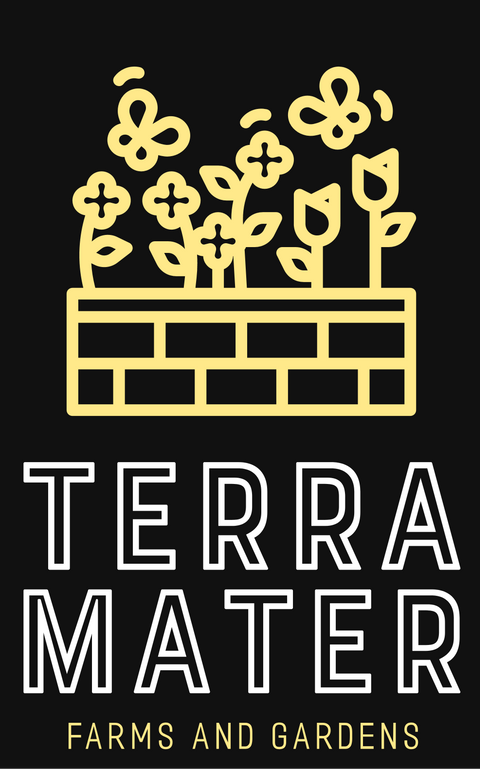Pigeon Pea 20+ Seeds (Cajanus cajan) – Jamaican Gungo Peas – Heirloom Drought-Tolerant Legume – Dual-Use as Food & Cover Crop
Minimum: 20+ seeds
Transform your garden or farm with the versatile and hardy Pigeon Pea (Cajanus cajan), also known as Jamaican Gungo Peas. This multi-functional legume serves as both a delicious, protein-packed food source and a beneficial cover crop. Renowned for its drought tolerance, Pigeon Pea thrives in challenging climates and poor soils, making it an ideal choice for sustainable farming and permaculture systems. With its nitrogen-fixing roots, it rejuvenates the soil while providing nutrient-rich peas for culinary use. This perennial legume can also act as a windbreak, shade provider, and erosion control plant, making it a true powerhouse in agroecology.
Key Features:
-
Dual-Purpose Legume: Enjoy as a protein-rich food source or as a soil-enhancing cover crop.
-
Drought-Tolerant & Resilient: Thrives in hot, arid climates and poor soils, requiring minimal water.
-
Nitrogen Fixing: Enriches the soil with nitrogen, supporting healthier and more productive future crops.
-
Fast-Growing & Perennial: Grows quickly and continues to produce for multiple seasons.
-
Sustainable Agriculture: A valuable addition to permaculture systems, food forests, and regenerative farming practices.
Nutritional & Culinary Use:
Pigeon Peas are a staple in Caribbean, Indian, African, and Latin American cuisines. The peas can be eaten fresh as green peas or dried for storage. They’re commonly used in soups, stews, curries, and rice dishes like Jamaica’s famous "Rice and Peas." Their mild, nutty flavor pairs well with a variety of spices, and their high protein content makes them a valuable addition to vegetarian and vegan diets.
Growing Instructions:
-
Light Requirements: Prefers full sun for optimal growth and maximum pea production.
-
Soil Preferences: Adapts to a variety of soils, from sandy to loamy, but performs best in well-drained soil.
-
Planting: Direct sow seeds in warm soil after the last frost. For best results, soak seeds in water for 12-24 hours before planting.
-
Watering: Water regularly until established. Once mature, Pigeon Pea is highly drought-tolerant, requiring minimal irrigation.
-
Spacing: Plant seeds 3-4 inches apart, with rows spaced 2-3 feet apart for optimal airflow and growth.
-
Growth Timeline: Germination occurs within 10-15 days. The plant matures in about 4-6 months, but it continues to produce for multiple years as a perennial in warmer climates.
Care Tips:
-
Pruning: Prune regularly to maintain a manageable size and encourage continuous pea production.
-
Pest & Disease Resistance: Naturally resistant to most pests and diseases, making it a low-maintenance addition to the garden.
-
Frost Sensitivity: While Pigeon Pea is perennial in tropical climates, it may die back in areas with frost. In cooler zones, it’s often grown as an annual.
-
Companion Planting: Pairs well with corn, millet, sorghum, and cassava. Its shade and windbreak qualities benefit smaller companion crops.
Ecological Benefits:
Pigeon Pea is a cornerstone of sustainable farming. Its nitrogen-fixing properties rejuvenate depleted soils, reducing the need for synthetic fertilizers. It provides shelter and forage for beneficial insects, birds, and pollinators. The deep roots also stabilize soil, prevent erosion, and improve water retention, supporting resilient landscapes in arid regions.
Perfect For:
-
Food Gardens: Grow your own source of protein-rich peas for stews, curries, and rice dishes.
-
Sustainable Farms: Add to permaculture systems, food forests, and agroforestry designs.
-
Erosion Control: Stabilize slopes and prevent soil loss with its deep-rooting system.
-
Soil Regeneration: Use as a cover crop to improve soil health and fertility.
-
Pollinator Habitat: Attract beneficial insects with its flowers, enhancing the biodiversity of your garden.
Why Choose Pigeon Pea?
Pigeon Pea is a sustainable, multifunctional crop that fits seamlessly into regenerative farming practices. It’s a must-have for farmers, homesteaders, and gardeners looking for a drought-tolerant, low-maintenance solution to improve soil health and boost biodiversity. From providing essential protein in global cuisines to supporting healthy soils and local ecosystems, Pigeon Pea is a true "do-it-all" plant.
Bring the Power of Pigeon Peas to Your Garden!
Experience the benefits of this drought-tolerant, soil-rejuvenating legume. Whether you’re feeding your family with fresh peas or supporting regenerative agriculture, Pigeon Pea (Cajanus cajan) delivers. Cultivate sustainability, resilience, and flavor with this heirloom staple today!





